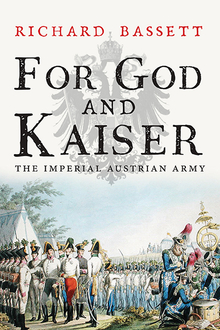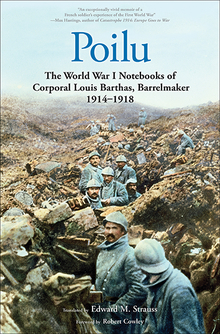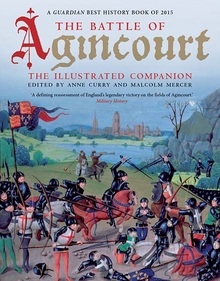For God and Kaiser
WARNING
You are viewing an older version of the Yalebooks website. Please visit out new website with more updated information and a better user experience: https://www.yalebooks.com
The Imperial Austrian Army, 1619-1918
Richard Bassett
The definitive history of Austria’s multinational army and its immense role during three centuries of European military history
Among the finest examples of deeply researched and colorfully written military history, Richard Bassett’s For God and Kaiser is a major account of the Habsburg army told for the first time in English. Bassett shows how the Imperial Austrian Army, time and again, was a decisive factor in the story of Europe, the balance of international power, and the defense of Christendom. Moreover it was the first pan-European army made up of different nationalities and faiths, counting among its soldiers not only Christians but also Muslims and Jews.
Bassett tours some of the most important campaigns and battles in modern European military history, from the seventeenth century through World War I. He details technical and social developments that coincided with the army’s story and provides fascinating portraits of the great military leaders as well as noteworthy figures of lesser renown. Departing from conventional assessments of the Habsburg army as ineffective, outdated, and repeatedly inadequate, the author argues that it was a uniquely cohesive and formidable fighting force, in many respects one of the glories of the old Europe.
Among the finest examples of deeply researched and colorfully written military history, Richard Bassett’s For God and Kaiser is a major account of the Habsburg army told for the first time in English. Bassett shows how the Imperial Austrian Army, time and again, was a decisive factor in the story of Europe, the balance of international power, and the defense of Christendom. Moreover it was the first pan-European army made up of different nationalities and faiths, counting among its soldiers not only Christians but also Muslims and Jews.
Bassett tours some of the most important campaigns and battles in modern European military history, from the seventeenth century through World War I. He details technical and social developments that coincided with the army’s story and provides fascinating portraits of the great military leaders as well as noteworthy figures of lesser renown. Departing from conventional assessments of the Habsburg army as ineffective, outdated, and repeatedly inadequate, the author argues that it was a uniquely cohesive and formidable fighting force, in many respects one of the glories of the old Europe.
Richard Bassett was staff correspondent for the London Times in Vienna, Rome, and Warsaw during the closing decade of the Cold War. He lives in London.
“John Keegan, perhaps the greatest British military historian of recent years, felt that the most important book that remained unwritten was a history of the Austrian army. Richard Bassett has now successfully filled the gap, and few could be better qualified to do so.”—John Jolliffe, The Spectator
‘[Bassett] sets out 'to explore whether the Habsburgs’ army’s reputation for inefficiency, incompetence, general unreliability, and even cruelty, is at all justified.' Calling to his aid an impressively broad array of sources, he demonstrates with engaging verve that it is not.’—Adam Zamoyski, Literary Review
'To the normal qualities to an historian Richard Bassett adds a profound knowledge of Austrian culture and the Austrian mentality. I cannot think of a better means of bringing the intelligent public to an understanding (and dare I say, enjoyment) of this enthralling subject, so long misunderstood in the standard historiography.' —Christopher Duffy, author of The Austrian Army in the Seven Years War
'This is an excellent book well suited to all levels of readership and will go a long way to redress the long held misconceptions of Austria's place in Europe.'—Army Rumour Service
'A scholarly, accessible English-language survey of the Habsburg Army, its achievements and eccentricities, has long been awaited. This need has now been met by Richard Bassett, who combines a mastery of the sources with a deep understanding of Austrian life and culture.'—Christopher Duffy, author of The Austrian Army in the Seven Years War
“In his superb new book, For God and Kaiser, Richard Bassett examines the central role the imperial army played in Austria. While this fighting force was undeniably in dire straits by 1914, he argues that it has gotten something of a bum rap. For several centuries, it displayed a remarkable capacity to adapt and innovate. Bassett believes that the army expressed the idea that dynastic, cultural and economic relations were more important than national identity. Indeed, the army became a remarkably successful tool for state formation and provided cohesion even as nationalism became a greater force. . . . Bassett deftly describes how Austria’s army differed from its European counterparts.”—William Hay, National Interest
“Bassett draws on an impressive range of primary and secondary sources to support his argument, which is presented chronologically in three evenly balanced sections.”—Peter H. Wilson, Journal of Modern History
“. . . Bassett’s beautifully-written account is leavened with engaging vignettes revealing the ways in which these armed forces have shaped and coloured even today’s Austria.”—Andrew Barker, Austrian Studies
"This is good narrative history and its comprehensive nature makes it an interesting introduction to students or a general audience without much knowledge of the Habsburg monarchy. Another point in Bassett’s favor is that he aims to situate this campaign history in the context of the larger debates about the Dual Monarchy of Austria-Hungary and its viability in the early twentieth century."—Matthew Lungerhausen, H-Net Reviews
ISBN: 9780300219678
Publication Date: April 5, 2016
Publication Date: April 5, 2016
616 pages, 5 x 7 3/4
30 b/w illus + 7 maps
30 b/w illus + 7 maps








